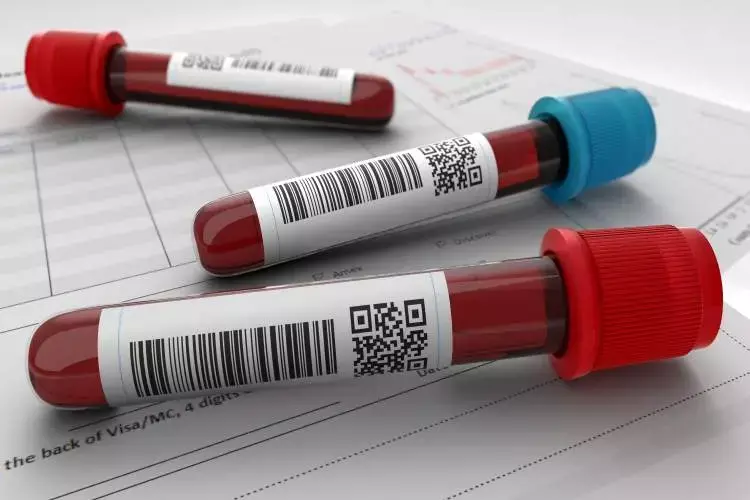- Home
- Medical news & Guidelines
- Anesthesiology
- Cardiology and CTVS
- Critical Care
- Dentistry
- Dermatology
- Diabetes and Endocrinology
- ENT
- Gastroenterology
- Medicine
- Nephrology
- Neurology
- Obstretics-Gynaecology
- Oncology
- Ophthalmology
- Orthopaedics
- Pediatrics-Neonatology
- Psychiatry
- Pulmonology
- Radiology
- Surgery
- Urology
- Laboratory Medicine
- Diet
- Nursing
- Paramedical
- Physiotherapy
- Health news
- Fact Check
- Bone Health Fact Check
- Brain Health Fact Check
- Cancer Related Fact Check
- Child Care Fact Check
- Dental and oral health fact check
- Diabetes and metabolic health fact check
- Diet and Nutrition Fact Check
- Eye and ENT Care Fact Check
- Fitness fact check
- Gut health fact check
- Heart health fact check
- Kidney health fact check
- Medical education fact check
- Men's health fact check
- Respiratory fact check
- Skin and hair care fact check
- Vaccine and Immunization fact check
- Women's health fact check
- AYUSH
- State News
- Andaman and Nicobar Islands
- Andhra Pradesh
- Arunachal Pradesh
- Assam
- Bihar
- Chandigarh
- Chattisgarh
- Dadra and Nagar Haveli
- Daman and Diu
- Delhi
- Goa
- Gujarat
- Haryana
- Himachal Pradesh
- Jammu & Kashmir
- Jharkhand
- Karnataka
- Kerala
- Ladakh
- Lakshadweep
- Madhya Pradesh
- Maharashtra
- Manipur
- Meghalaya
- Mizoram
- Nagaland
- Odisha
- Puducherry
- Punjab
- Rajasthan
- Sikkim
- Tamil Nadu
- Telangana
- Tripura
- Uttar Pradesh
- Uttrakhand
- West Bengal
- Medical Education
- Industry
Complete blood count test, a cost-effective tool to monitor glycemic control in type 2 diabetes: Study

Turkey: Research has found a significant association between complete blood count (CBC) parameters, like neutrophil, WBC, RBC, and mean platelet volume (MPV) and unregulated diabetes.
The findings of the study, published in the Journal Of Pakistan Medical Association, imply that a simple CBC test showing neutrophil-lymphocyte ratio (NLR) can be utilized as a cost-effective tool to monitor glycaemic regulation in patients with type 2 diabetes mellitus (T2DM).
Zeyneb Irem Yuksel Salduz and Aclan Ozder performed a retrospective, single-center study in Turkey in order to evaluate the inflammatory cells in the complete blood count test and their relationship with the glycaemic control in type 2 diabetes patients.
The study was conducted at the Department of Family Medicine, Bezmialem Vakif University, Istanbul, Turkey, from January 2015 to June 2016. It comprised data from type 2 diabetes patients like complete blood count and biochemical parameters. Data stratification was done according to glycated hemoglobin levels; <7% in group 1, and >7% in group 2. Data were analyzed using SPSS 21.
The study led to the following findings:
· Of the 320 subjects, 54% were in group 1 and 46% in group 2. Overall, there were 33% male and 67% female subjects. The mean age of the sample was 53.6±11.9 years.
· White blood cell count, neutrophil count, and neutrophil-lymphocyte ratios were significantly higher in group 2.
· Red blood cell count, mean platelet volume, fasting blood glucose, triglyceride, and alanine aminotransferase levels were also significantly higher in group 2.
· A positive statistical correlation was found of HbA1c levels with WBC, neutrophil count, RBC, NLR, FBG, TG, low-density lipoprotein cholesterol (LDL-C), and ALT. However, a negative statistically significant correlation was found between HbA1c and mean corpuscular volume (MCV).
"CBC parameters, like neutrophil, WBC, RBC, and MPV, had a significant association with unregulated diabetes," the authors wrote in their study. "Simple CBC test showing NLR can be used as a cost-effective tool to monitor glycaemic regulation in T2DM."
Reference:
The study titled, "Neutrophil lymphocyte ratio as useful predictive tool for glycaemic control in type 2 diabetes: Retrospective, single centre study in Turkey," was published in the Journal Of Pakistan Medical Association. DOI: https://doi.org/10.47391/JPMA.3205
Dr Kamal Kant Kohli-MBBS, DTCD- a chest specialist with more than 30 years of practice and a flair for writing clinical articles, Dr Kamal Kant Kohli joined Medical Dialogues as a Chief Editor of Medical News. Besides writing articles, as an editor, he proofreads and verifies all the medical content published on Medical Dialogues including those coming from journals, studies,medical conferences,guidelines etc. Email: drkohli@medicaldialogues.in. Contact no. 011-43720751


